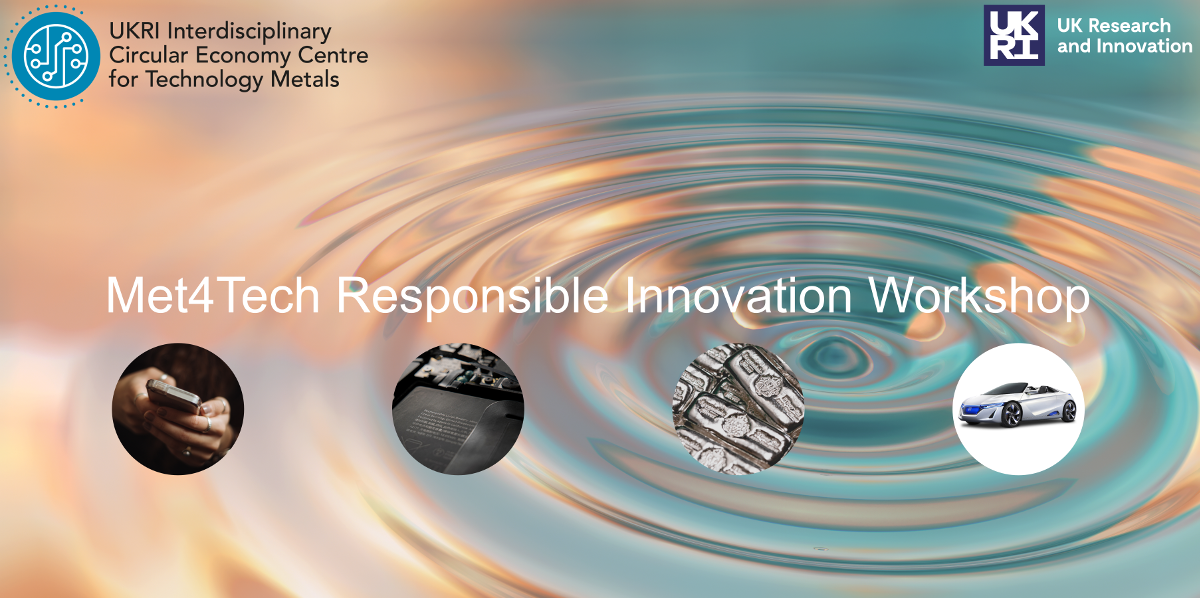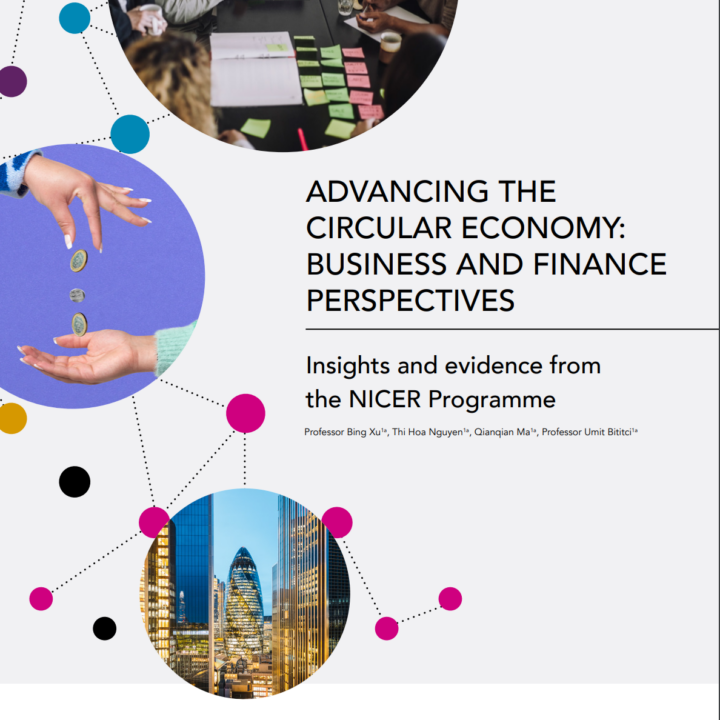2021, Global Alliance on CE & Resource Efficiency
NICER Case Study: Responsible Innovation
Met4Tech, 2022
Overview
Responsible Innovation (RI) is defined by Von Schomberg (2013) as a transparent and interactive process by which societal actors and innovators actively engage with each other to ensure the (ethical) acceptability, sustainability and societal desirability of the innovation process and its marketable products.
Responsible Innovation is embedded in all themes across the Met4Tech project. Two RI workshops have been conducted so far with the project partners and researchers, and more RI activities are scheduled along the project timeline.
Some insights that have emerged are diversity of supply as an important part of responsible sourcing; recycling is not always virtuous, and that the same lessons need to apply to recycling as to initial mining and processing. Regulations are also essential in managing behaviours along the supply chain.
Approach, activities & rationale
The first workshop, led by Prof Frank Boons and Dr Gavin Harper, was held in 2021 via webinar focused on the principles of Responsible Innovation (RI). It used a ‘learning history’ approach in which the development and diffusion of several key products containing technology metals was collectively explored: (1) Nano-silver in consumer products; (2) Lithium-Ion Batteries for mobility; (3) Platinum in catalytic convertors; and (4) Tantalum in consumer electronics. This work provided helpful ‘learning lessons’ for more circular and sustainable approaches.
A second workshop was conducted in 2022 by Prof Frank Boons and Dr Sampriti Mahanty with the early career researchers (ECRs) on Met4Tech. This workshop focussed on providing an overview of RI principles and their importance in the Met4Tech research context to the ECRs. The discussion was focused on identifying key dynamics that help bring about and sustain contested practices in selected challenge areas and robust solutions that systemically tackle contested practices.
Accelerating Understanding
Participants including industry partners, researchers, and policymakers have explored how past events and turning points shown on custom-made visualisations (‘timeline’ diagrams) have affected the development and markets for the four key products selected (see list above). Participants also discussed the RI definition (see above) and several examples, and requirements for developing a set of RI guidelines for the Met4Tech project.
In a plenary session, the groups reflected on the definition of RI and the AREA framework (Anticipate / Reflect / Engage / Act) by the EPSRC and discussed how to conduct the Met4Tech project activities responsibly.
National Leadership & Knowledge Exchange
Some key insights are that the (building blocks for) circular systems we develop in our research need to be agile, and we should think carefully about possible unintended consequences. Some insights that emerged were diversity of supply is an important part of responsible sourcing, recycling is not always virtuous, and the same lessons need to apply to recycling as to initial mining and processing. We should look for voluntary solutions, as these are likely to be a more agile, faster, and an easier to implement route, however, regulations are also essential in controlling behaviours. It is important to watch out for new materials emerging, as this is a likely driver for supply chain problems. Monitoring new applications outside of our core interests (motors, batteries etc.) is important as these new technologies could be helpful or could create potential new problems in future.
Embedding Research with Stakeholders
The main outcome from the first workshop is new insight into the draft guidelines for responsible innovation that could be applied towards: (i) the National Virtual Data Observatory (NVO); (ii) working together with project partners on new Case Studies; and (iii) the development of the new Technology Metals Circular Economy Roadmap.
Outcomes on Responsible Research Innovation from the first workshop formed guidelines for the later ECR Workshop. ECRs are now engaged in activities where they can reflect on what actions are required in order to embed RI principles in their research work with Met4Tech, and in their future careers.
Lessons Learnt & Future Steps
The building blocks for a Circular Economy for technology metals within the UK need to be agile, and we should think carefully about possible unintended consequences. It is important to watch out for new materials early, as this is a likely driver for realignment in emerging supply chains.
Met4Tech continues to incorporate consideration for responsible innovation into each thematic area as we develop our Technology Metals Circular Economy Roadmap alongside our partners and other stakeholders.
Further Information







